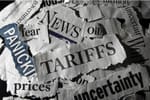Inflation can sneak up and shrink your purchasing power, making everyday expenses more burdensome.
However, strategic financial planning can shield your budget from feeling the squeeze.
By adopting smart budgeting techniques, you'll stretch your dollar further and gain better control over your financial future.
Are you ready to enhance your financial resilience and unlock the secrets to effective budgeting?
Read on to discover ten practical tips to help you stay ahead of inflation and secure your economic well-being.
1)) Track Your Expenses Regularly
Keeping a close eye on your expenses is a crucial step toward mastering your budget.
By tracking every dollar spent, you gain insight into your spending habits and can identify areas where you may be overspending.
Utilize budgeting apps or simple spreadsheets to record daily transactions, categorize expenses, and set spending limits.
This practice not only helps you stay on track but also uncovers patterns that may have previously gone unnoticed.
When you consistently monitor your expenses, you equip yourself with the knowledge needed to make informed financial decisions and adjust your spending to stay within your budget.
This proactive approach sets the foundation for robust financial health and keeps you ahead in a fluctuating economic landscape.
Pro-Tip: A printable Monthly Bill Tracker is a powerful tool for managing personal finances, especially during inflationary periods.
By laying out all of your recurring bills in an organized format, you can easily visualize your monthly obligations and identify any unexpected charges.
This strategy simplifies your budgeting process and ensures that you never miss a payment, avoiding late fees that could further strain your budget.
Download our Monthly Bill Tracker Printable PDF today and take the first step toward financial clarity and stability in uncertain times!
2)) Create And Stick To A Realistic Budget
Crafting a realistic budget is essential to effectively manage your finances and combat the effects of inflation.
Start by evaluating your income and distinguishing between essential expenses, such as housing, utilities, and groceries, and discretionary spending.
Set practical and attainable financial goals, allowing flexibility for unforeseen expenses.
A successful budget doesn’t mean restricting enjoyment but rather promoting a balanced lifestyle while staying financially healthy.
Use tools or apps to keep track of how well you're sticking to the plan and make necessary adjustments along the way.
By creating and adhering to a thoughtful budget, you establish a strong framework to weather economic unpredictabilities, ensuring your financial stability and peace of mind.
Pro-Tip: Leverage a printable Paycheck Budget Planner to optimize the allocation of your paycheck during inflationary times.
This planner enables you to categorize your income and expenses systematically, ensuring every dollar has a purpose.
It facilitates the separation of essential costs from discretionary spending, allowing you to prioritize saving and investing wisely.
By regularly reviewing your budget planner, you can swiftly adjust to any economic changes and continue meeting your financial commitments.
Gain full control over your paycheck flow and combat inflation by downloading our Paycheck Budget Planner PDF today—empower yourself to stay financially resilient and in control!
3)) Prioritize Essential Expenses
Prioritizing essential expenses is a fundamental strategy in managing your budget effectively during inflationary times.
Begin by identifying necessary expenditures that sustain your daily living standards, such as housing, utilities, food, and healthcare.
Focusing your financial resources on these core areas ensures that your basic needs are consistently met without compromise.
It's vital to differentiate between what is genuinely essential and what may be deferable or reduced when circumstances demand it.
Strategically directing your budget towards priorities can prevent financial strain and maintain a stable standard of living.
By putting essential expenses at the forefront, you build a resilient financial plan that helps safeguard your well-being against economic fluctuations, allowing you peace of mind and security.
4)) Reduce Unnecessary Spending
To optimize your budget and cushion the effects of inflation, cutting back on unnecessary spending is paramount.
Begin by conducting a comprehensive review of discretionary expenses, focusing on identifying non-essential outlays that can be eliminated or reduced without impacting your quality of life.
This might include dining out less frequently, reassessing subscription services, and postponing luxury purchases.
Small changes, such as brewing coffee at home or utilizing public transportation, can collectively lead to significant savings over time.
Embrace mindful spending habits by considering whether an expenditure adds real value and happiness to your life.
By actively reducing unnecessary spending, you free up resources that can be redirected towards savings or unexpected costs, strengthening your financial posture in the face of economic changes.
5)) Build An Emergency Fund
Building an emergency fund is an indispensable component of a sound financial strategy, serving as a protective buffer against unforeseen expenses.
Aim to save at least three to six months' worth of living expenses, ensuring you have enough to cover essentials like rent, utilities, and groceries in case of sudden job loss or unexpected medical bills.
Begin by setting aside a small amount regularly, even if it seems modest at first, and gradually increase it as your financial situation improves.
To make savings easier, consider automating transfers from your checking account to a dedicated savings account.
This approach ensures consistent growth of your emergency fund while minimizing the temptation to use these funds for non-emergency purposes.
Establishing an emergency fund reinforces financial stability, preparing you to navigate challenges with confidence and peace of mind, knowing you're well-equipped to handle whatever life throws your way.
6)) Shop Smart With Discounts And Coupons
Shopping smart by utilizing discounts and coupons is an effective strategy to stretch your budget further and mitigate the impact of inflation.
Begin by planning your purchases and researching sales or promotional events that can offer substantial savings.
Take advantage of both paper and digital coupons, which can usually be found through store websites, apps, or mailing lists.
By combining discounts and coupons with sales, you amplify your savings, ensuring that you spend less for the same goods.
Develop a routine of comparison shopping to find the best deals on essential items, and consider substituting brand-name products with store brands to enhance value.
This mindful approach not only maximizes your purchasing power but also enables you to maintain your desired lifestyle without overspending.
By embracing the habit of shopping smart with discounts and coupons, you contribute to a stable financial standing, ensuring that you are prepared for any economic uncertainties.
7)) Review And Adjust Your Subscriptions
Regularly reviewing and adjusting your subscriptions is a prudent step in managing your finances, especially in an inflationary environment.
Start by compiling a list of all current subscriptions, such as streaming services, magazines, and fitness memberships, and then evaluate which ones are used frequently and provide genuine value.
This process helps identify subscriptions that may no longer suit your needs or whose costs might outweigh their benefits.
Consider canceling unused subscriptions or downgrading to less expensive plans to reduce financial strain.
Look for promotional deals or bundled offers that could provide similar content at a reduced rate.
Staying proactive in managing subscriptions ensures that your spending aligns with your preferences and needs.
By keeping only the most valuable subscriptions, you can safeguard your financial resources, reinforcing a stable economic foundation and providing room for more meaningful expenses.
8)) Cook At Home More Often
Cooking at home more often is an efficient way to cut back on expenses while fostering healthier eating habits.
Preparing your meals allows you to have full control over ingredients, ensuring meals are nutritious and tailored to your tastes and dietary needs.
By planning your meals and buying ingredients in bulk, you can take advantage of cost savings, reducing the frequency of pricy takeout or dining out.
Home cooking also opens opportunities to experiment with a variety of cuisines and cooking techniques, enhancing your culinary skills.
Embrace the opportunity to cook with family or friends as a social activity, making it enjoyable and collaborative.
By incorporating more home-cooked meals into your routine, you not only achieve a more budget-conscious lifestyle but also lay the groundwork for a healthy and sustainable way of living.
9)) Invest In Energy-Saving Appliances
Investing in energy-saving appliances is a wise decision that not only reduces your environmental footprint but also leads to significant long-term financial savings.
These appliances use less energy, which can substantially lower your monthly utility bills and lessen your overall energy consumption.
When shopping for energy-efficient options, look for ones with the ENERGY STAR label, indicating that they meet rigorous energy efficiency criteria set by the U.S. Environmental Protection Agency.
Common energy-saving appliances include refrigerators, washing machines, and dishwashers, all of which contribute to more sustainable living without sacrificing performance or convenience.
Although the initial cost may be higher, the savings on energy bills and possible tax credits can offset the purchase price over time.
By choosing energy-efficient appliances, you support a more sustainable lifestyle while enhancing your financial well-being, ensuring a balance between cost-effectiveness and environmental responsibility.
10)) Explore Secondary Income Streams
Exploring secondary income streams is an effective strategy for building financial resilience and enhancing your overall economic stability.
Secondary income can come from various avenues such as freelancing, starting a small business, investing in stocks, or renting out a spare room.
Each option allows you to leverage your skills, hobbies, or available resources to generate additional revenue.
Diversifying your income sources not only provides extra funds for savings or investments but also acts as a financial cushion in times of uncertainty, such as job loss or economic downturns.
Engaging in side hustles or passive income opportunities can also lead to professional growth and new networks, expanding your career possibilities.
By exploring and establishing multiple income streams, you create a more robust financial safety net, empowering you to achieve a secure and prosperous financial future.
Conclusion
Adopting these mindful financial practices is essential for cultivating stability and resilience in an ever-changing economic landscape.
By taking control of your spending, optimizing the value derived from your subscriptions, and embracing habits like cooking at home, you not only manage your finances more effectively but also foster a healthier lifestyle.
Investing in energy-saving appliances and exploring secondary income streams further strengthens your financial security, enabling you to safeguard your future and adapt to unexpected challenges.
These strategies empower you to make informed choices that reflect your values and priorities, ultimately paving the way for a more sustainable and fulfilling life.
Related Articles and Guides:
- 10 Smart Ways To Stretch Your Budget During Inflation
- 10 Simple Tips To Cut Your Grocery Bill During High Inflation
- How To Plan Your Family Finances Amidst Rising Inflation
- How To Shop Smart And Save Despite Inflation
Download Our Free E-book!







